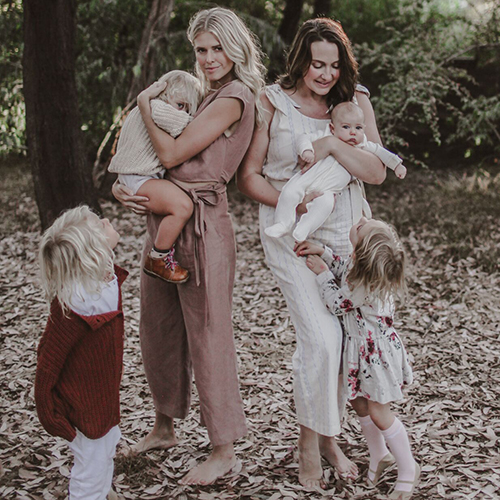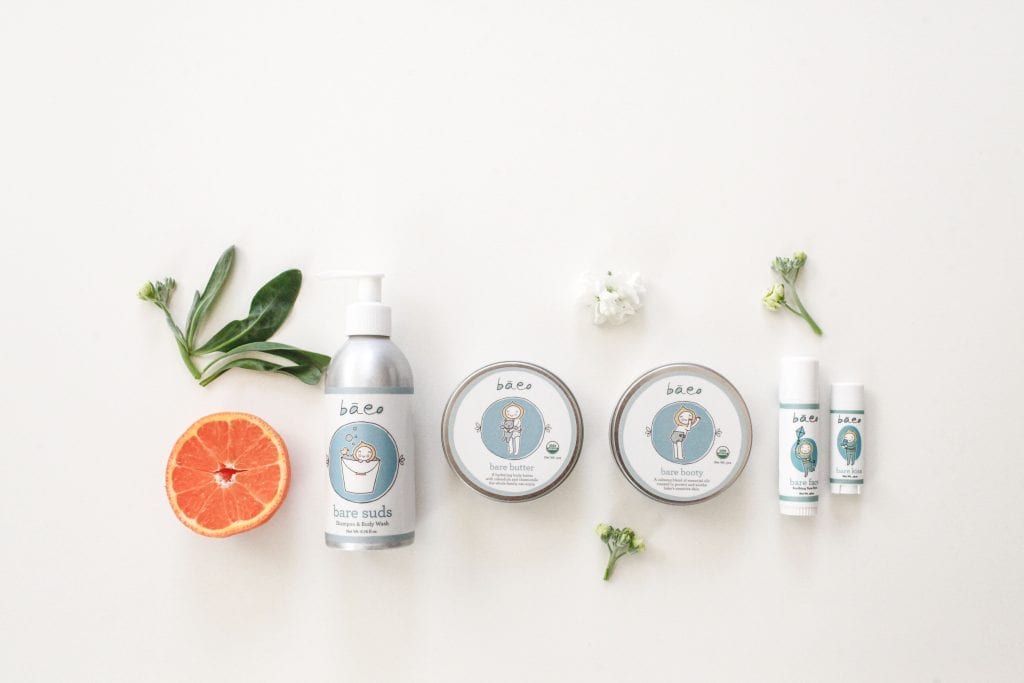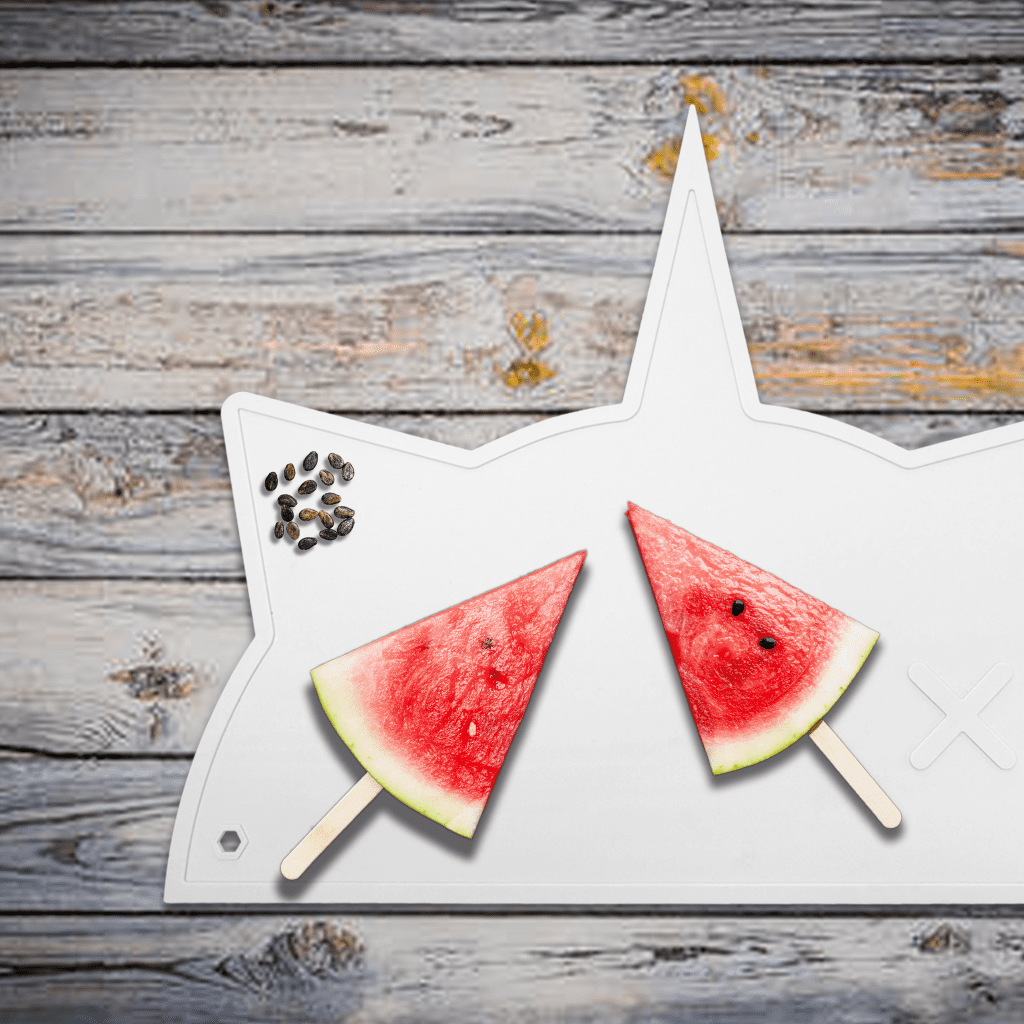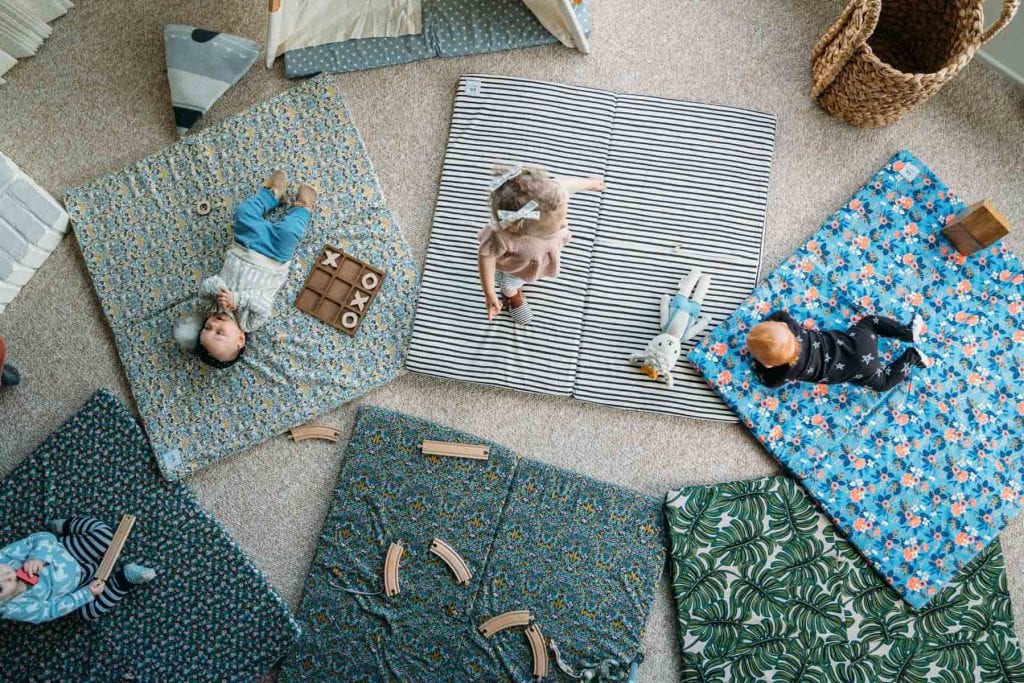
L.A. parents are, in many ways, at the forefront of ecoparenting. Many Angeleno kids grow up visiting farmers markets, recycling their trash and spending time outdoors hiking or at the beach. But many products that our children use every day still contain a cocktail of chemicals.
Children’s soaps, moisturizers and other personal-care products often contain phthalates, parabens, phenols and fragrances that some studies have shown to be hormone disruptors, and some contain sulfates, which can irritate the skin.
Children’s dinnerware and school lunch containers are often made of polyvinyl chloride (PVC) and can contain bisphenol A (BPA) and BPA substitutes that studies have linked to lower IQ, obesity and reproductive, developmental and metabolic effects.
Play gyms, playmats and nap mats could expose your children to volatile organic compounds from petroleum-based foams, flame retardants and potentially even a chemical called formamide, which the European Union considers a reproductive toxin.
Even our children’s clothing has an environmental impact due to the extent of pesticide use in conventional cotton crops. And the softeners, bleaches, ammonia, chemical dyes, phthalates and even formaldehyde and insecticides added to fabrics during manufacture, shipping and import can irritate sensitive skin.
For even the most well-meaning parent, it can be hard (and exhausting) to source nontoxic and fun items for our children. “When we had our first kids it was hard to find something that was really clean, worked, smelled good and was easy to use,” says Sarah Wright Olsen, co-founder of the nontoxic personal-care company bāeo. “It felt like it always checked two marks but never all four.”
This common frustration is inspiring an increasing number of L.A. women to launch companies that fill this void.
Clean Skin Care for Baby
Olsen and her friend Anna Schafer were living in L.A. and working as actresses when they became mothers for the first time. After sharing the frustration of not finding clean baby-care products, the two friends joined forces with a third mama, Sara Beyene Geittmann, to launch bāeo in 2018. “We wanted to create something special,” says Schafer. “Our goal was to make organic, eco-conscious products that we can truly stand behind. We are a small, mama-owned company.”
Schafer, Olsen and Geittmann partnered with two manufacturing companies that are USDA-certified certified, and had each ingredient proposed for bāeo products independently investigated. The product line they created includes shampoos, lip balm and body balm created for babies but convenient for the whole family to use. “We use our products on our own babes because we know what’s in them and we know they work,” says Olsen. “We believe in using the best ingredients.”

The women behind bāeo also wanted the company’s appeal to be more than skin deep. “We really wanted to get to know our customers and create a community where we can hear feedback and tell our stories,” says Schafer. “We really think it’s important to write every thank-you note in every order ourselves (while we can) and let our customers know we truly care and appreciate the support.” Giving back to their community is also important for the founders, so a percentage of all sales is dedicated to the nonprofit Baby2Baby to help its efforts in serving families in need around the country.
Keeping it Clean at Meal Time
Veronica Aguirrebeitia was born in Venezuela and has lived in Miami, London and Kuala Lumpur, so she brings an international perspective to her parenting. When she and her husband, who works in the entertainment industry, settled in L.A., she set to work to address what she considered a major deficit in the children’s-product industry. “I had always thought the majority of kids’ products tended to look cheap,” Aguirrebeitia says. “I wanted to make something I, as an adult, would personally love, that didn’t compromise my home décor, while serving the nontoxic and sustainable trend we are seeing.”
She first focused on creating an everyday feeding essential that was safe, ethical and cool, while giving back to the community. “I knew that parents should not have to compromise their kids’ health, safety and style to get amazing feeding products – which is often the case,” says Aguirrebeitia. “Parents already have too much going on in their lives – a lot of stress and anxiety – and we want to take that weight off their shoulders when it comes to choosing feeding gear.”

BamBamBoom placemats are available online and in some local retail stores. A line of plates, cups and other feeding essentials is planned. For every product it sells, the company donates meals to kids in need through No Kid Hungry in the U.S., and meals and schooling through OSCASI in Venezuela.
Thus, in 2018, BamBamBoom and its Unicorn-Cat and Hedgehog-Dino placemats were born. The placemats’ minimalist designs are meant to “really spark the sense of fun for the kids, while still looking great on the table,” Aguirrebeitia says. BamBamBoom products are made with the highest quality food-grade silicone, instead of commonly used PVC, meeting strict sustainability goals while still appealing to kids and parents. “They are super durable, stain resistant, non-slip and dishwasher safe,” she says. “The silicone we use is BPA-, BPS-, PVC- and lead-free.”
Portable Mats for Safe Play
Toki Mats founder Eli Yonas didn’t always research what her children’s products were made of. “I trusted that any recommended and standard baby product was, by default, nontoxic,” she says. “Why would I even think to research the safety of baby products? Once I realized that not every company shared my standards for safe products, finding the alternatives was super difficult.”
While she was on maternity leave with her second baby, inspiration struck. “I was always on the move in our apartment, chasing after my toddler. Running from a wood floor to tile and back, I needed something I could easily grab with me to set up a comfortable play space for my daughter,” says Yonas. “There were some amazing products on the market, but none that completely fit my needs.” Most play mats are made of EVA foam and are not very mobile, but Yonas had an idea for a more natural product that would combine the top features she says moms need to set up a space for family floor play: Safe, padded, portable and cute!
Sustainable, Nontoxic Style

Toki Mats are made of nontoxic, chemical-free, natural materials. Less than a year after opening for business in December 2017, Toki Mats added certified organic latex inserts and certified organic cotton covers to its product line. “When we first launched, I started getting customer requests for not just a nontoxic play mat, but an organic one,” says Yonas. “I immediately began my research, and it took another eight months to find quality inserts and covers for the new organic line – and now it’s live!”
When Sofia Melograno came up with an idea for a kids’ clothing line, she knew she wanted her company’s products to be more than just cute. “Ethics and sustainability was ingrained in our brand from day one,” she says. “The idea of making money at the expense of other people or the environment was not something that I could accept. You can do good, be good and remain profitable.”
When Beru Kids launched in Downtown L.A. in 2015, Melograno and co-founder Roxanne Pedroza first focused on addressing the issue of waste in the fashion industry. “[We] focused only on the use of deadstock fabrics, or surplus fabric left over from large-scale brands,” Melograno says. “It was all about recycling and reusing what was already out there to not create any new waste.” With time, she realized the company’s client base wanted more. “[They] were interested in ethics and the use of nontoxic materials in apparel. Parents [are] increasingly aware and concerned about what they put on their little ones’ bodies,” she says.
Today, Beru Kids uses both deadstock and certified-organic fabrics to produce ethically made, traceable and stylish clothing manufactured right here in L.A. “We’re trying to be proof that ethics and sustainability can still mean cool pieces for your minis!” Melograno says. “It doesn’t need to be ‘granola.’”
After years of working in journalism, Aida Garcia-Toledo founded Non-Toxic Munchkin, a resource offering research, tips, product reviews and encouragement for those who want to live healthier lives less dependent on chemicals.


























